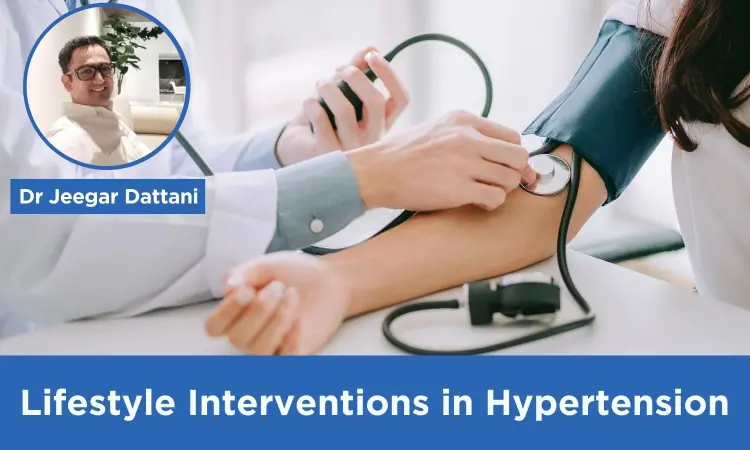- Home
- Medical news & Guidelines
- Anesthesiology
- Cardiology and CTVS
- Critical Care
- Dentistry
- Dermatology
- Diabetes and Endocrinology
- ENT
- Gastroenterology
- Medicine
- Nephrology
- Neurology
- Obstretics-Gynaecology
- Oncology
- Ophthalmology
- Orthopaedics
- Pediatrics-Neonatology
- Psychiatry
- Pulmonology
- Radiology
- Surgery
- Urology
- Laboratory Medicine
- Diet
- Nursing
- Paramedical
- Physiotherapy
- Health news
- Fact Check
- Bone Health Fact Check
- Brain Health Fact Check
- Cancer Related Fact Check
- Child Care Fact Check
- Dental and oral health fact check
- Diabetes and metabolic health fact check
- Diet and Nutrition Fact Check
- Eye and ENT Care Fact Check
- Fitness fact check
- Gut health fact check
- Heart health fact check
- Kidney health fact check
- Medical education fact check
- Men's health fact check
- Respiratory fact check
- Skin and hair care fact check
- Vaccine and Immunization fact check
- Women's health fact check
- AYUSH
- State News
- Andaman and Nicobar Islands
- Andhra Pradesh
- Arunachal Pradesh
- Assam
- Bihar
- Chandigarh
- Chattisgarh
- Dadra and Nagar Haveli
- Daman and Diu
- Delhi
- Goa
- Gujarat
- Haryana
- Himachal Pradesh
- Jammu & Kashmir
- Jharkhand
- Karnataka
- Kerala
- Ladakh
- Lakshadweep
- Madhya Pradesh
- Maharashtra
- Manipur
- Meghalaya
- Mizoram
- Nagaland
- Odisha
- Puducherry
- Punjab
- Rajasthan
- Sikkim
- Tamil Nadu
- Telangana
- Tripura
- Uttar Pradesh
- Uttrakhand
- West Bengal
- Medical Education
- Industry
Lifestyle Interventions in Hypertension: International Society of Hypertension 2023 Position Paper

Hypertension, defined as persistently elevated systolic blood pressure (SBP) >140mmHg and/or diastolic blood pressure (DBP) at least 90mmHg (International Society of Hypertension guidelines), affects over 1.5 billion people worldwide. Hypertension is associated with an increased risk of cardiovascular disease (CVD) events (e.g. coronary heart disease, heart failure, and stroke) and death.
An international panel of experts convened by the International Society of Hypertension College of Experts compiled lifestyle management recommendations as a first-line strategy to prevent and control hypertension in adulthood. These lifestyle changes are required to be continued along with blood pressure-lowering medications. Specific recommendations based on literature evidence are summarized with advice to start these measures early in life, including maintaining healthy body weight, increased levels of different types of physical activity, healthy eating and drinking, avoidance and cessation of smoking and alcohol use, and management of stress and sleep levels.
The lifestyle changes recommended in the position paper can be grouped around movement & body weight, food & drinks, body and mind, and other interventions.
The key interventions from the position paper include the following:
A. Movement and Body Weight
- Maintain a healthy weight such that waist to height ratio is <0.5. The paper reinforces minimizing sedentary behavior
- It is recommended to engage in aerobic exercises including,
- Moderate (brisk walking) for 30 minutes, 5 times a week,
- Vigorous (running) for 20 minutes, 3 times a week and
- Interval training, for 25 minutes, 3 times a week
- It is recommended to engage in dynamic resistance exercises (weight training) on two or more non-consecutive days
- It is recommended to engage in isometric resistance exercises (muscle tightening), four two-minute contractions on 3 non-consecutive days
B. Food & Drinks
The foods and drinks to consume include the following:
- The paper recommends to eat at least five portions of fruits and vegetables daily
- Consume higher amounts of lean protein like fish and nuts
- Consume at least 3.5 grams of Potassium each day
- Consume 25-29 grams of fiber daily
- Consume 2-3 cups of unsweetened coffee and/or tea
- Drink beetroot and pomegranate juice and cocoa drinks
The food and drinks to avoid include
- Eat less salt, <5g per day
- Limit sugar, refined and processed food
- Limit alcohol to ideally zero
C. Body & Mind
- Sleep 7-9 hours a day
- Reduce stress by adopting mindfulness practice, meditation, or yoga ~30 minutes /day
- Listen to music for atleast 25 minutes, 3 times a week
D. Other Interventions
- Stop smoking
- Limit pollution exposure
- Make use of digital wearable apps to track movement and sleep
- Intermittent fasting with calorie restrictions may be beneficial for weight loss and BP reduction but is not superior to a general calorie-restricted diet. Therefore, the use of intermittent fasting should depend on patient preferences and other considerations
Healthcare providers need to consider a holistic, multicomponent approach addressing many lifestyle interventions simultaneously. Comprehensive hypertension lifestyle changes such as exercise, education, nutritional habits, and policies need to be targeted for both rural and urban areas. The US Centres for Disease Control and Prevention platforms contain a large compendium of local and global studies centered on the benefits of behavioral interventions upon modifiable risk factors for chronic disease prevalence and outcomes.
This position paper is published in the September 2023 issue of the Journal of Hypertension.
The paper is released by the International Society of Hypertension, and endorsed by the World Hypertension League and the European Society of Hypertension
References
Adapted from:
Charchar FJ, et al, Lifestyle management of hypertension: International Society of Hypertension position paper endorsed by the World Hypertension League and European Society of Hypertension. J Hypertens. 2023 Sep 13. doi: 10.1097/HJH.0000000000003563.
Disclaimer: The views expressed in this article are of the author not of Medical Dialogues. The Editorial/Content team of Medical Dialogues has not contributed to the writing/editing/packaging of this article.
Dr Kamal Kant Kohli-MBBS, DTCD- a chest specialist with more than 30 years of practice and a flair for writing clinical articles, Dr Kamal Kant Kohli joined Medical Dialogues as a Chief Editor of Medical News. Besides writing articles, as an editor, he proofreads and verifies all the medical content published on Medical Dialogues including those coming from journals, studies,medical conferences,guidelines etc. Email: drkohli@medicaldialogues.in. Contact no. 011-43720751


